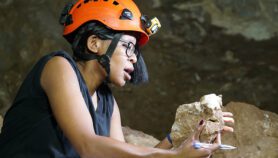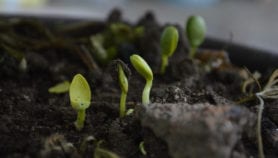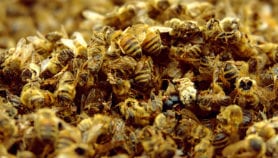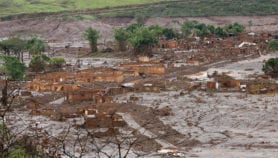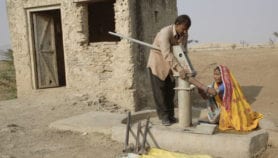Send to a friend
The details you provide on this page will not be used to send unsolicited email, and will not be sold to a 3rd party. See privacy policy.
[UPPSALA, SWEDEN] The impact of multi-stakeholder projects vital for agricultural development are limited by the compartmentalisation of science and researchers’ dislike of crossing disciplinary boundaries, an expert has warned.
Speaking at a group discussion at the Agricultural Research for Development: Innovations & Incentives conference in Uppsala, Sweden, last week (26–27 September), Francois Stepman, co-manager of the Platform for African European Partnership on Agricultural Research for Development (PAEPARD) questioned if the narrow focus of scientific research encouraged fruitful collaboration necessary for solving development problems.
Researchers are wary of extending their work beyond their immediate expertise, and compete against one another for funding, both factors that limit the productivity of projects spanning multiple scientific fields, he told SciDev.Net.
Moreover, such projects require researchers to work with multiple civil society stakeholders — such as non-governmental organisations, farm unions and the private sector — a complex role that many are unprepared for or unwilling to take on.
"It is nice to talk about multidisciplinary cooperation, but in practice it is very difficult to make it happen," says Stepman.
He added that the newfound capacity of civil society actors to implement development projects means it is now more important than ever that scientists work effectively with them.
Stepman’s comments were particularly relevant, if controversial, in a meeting where multidisciplinary projects were frequently touted as vital for allowing agricultural research to promote development —not least by representatives of CGIAR, formerly known as the Consultative Group on International Agricultural Research, which used the conference to advertise the new strategy of its Livestock and Fish programme.
Rather than pursuing many avenues of disconnected research, the programme will focus on studying fewer issues in a more comprehensive manner, involving a wide range of stakeholders.
This new approach aims to maximise the real-world impact of research, according to Delia Grace, representing the CGIAR programme on Livestock and Fish, and a speaker at the conference.
Grace was optimistic of success, despite Stepman’s comments. Whilst she acknowledged his views are true to "some extent", she said many scientists, particularly those in more applied fields such as engineering, do not fit this mould.
"There are loads of scientists with the capacity and willingness to come together in a coalition to solve agricultural and development problems", she said.
Nteranya Sanginga, director-general of the International Institute of Tropical Agriculture, agreed that getting agricultural researchers to work effectively within the development community was a significant hurdle to overcome.
But examples of successful multidisciplinary projects from his own institution are clear evidence that it is possible, he added.




